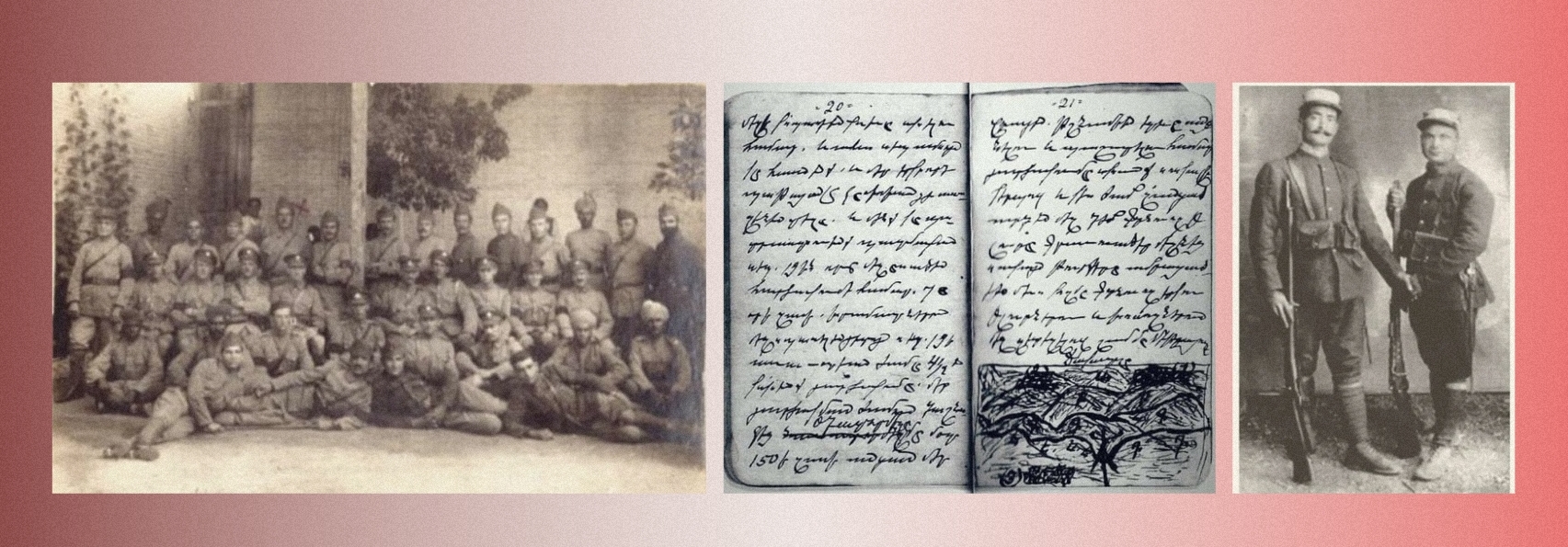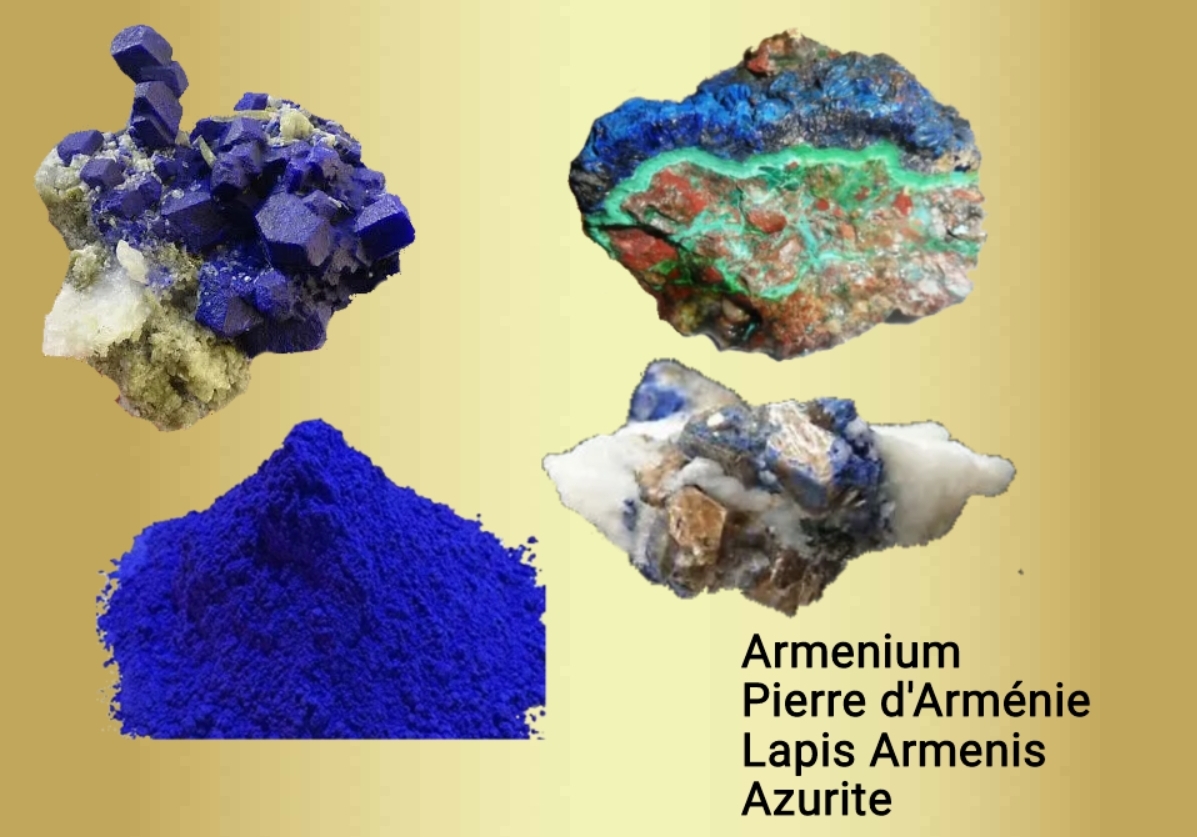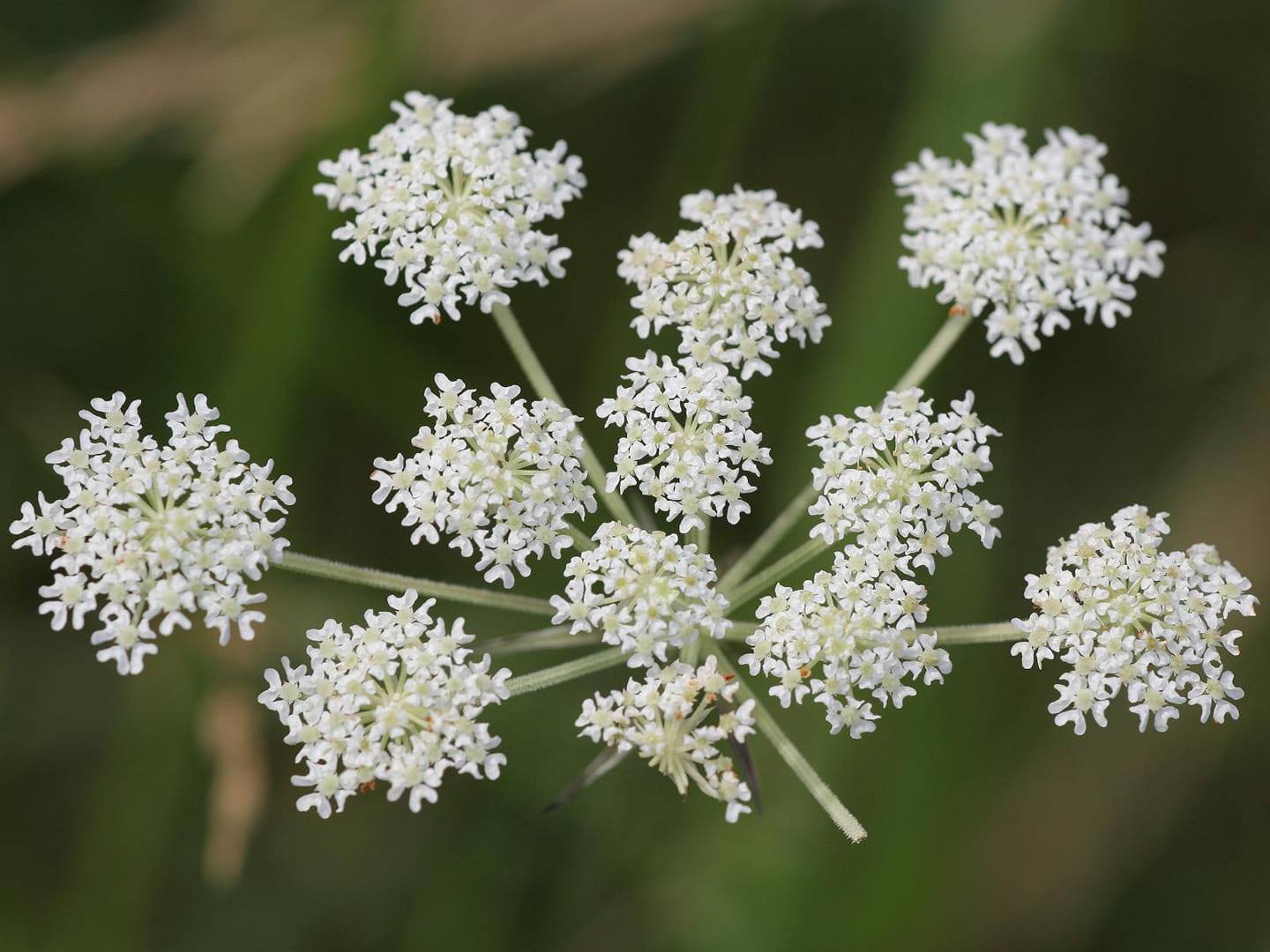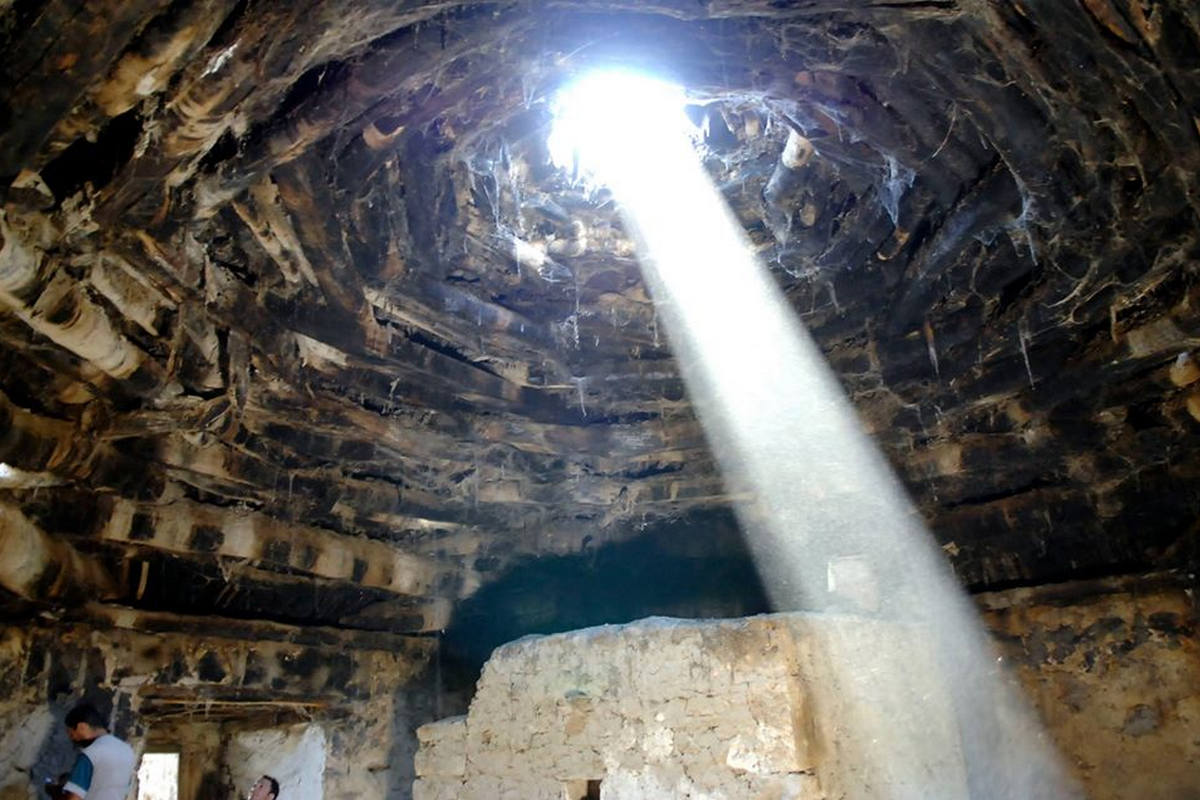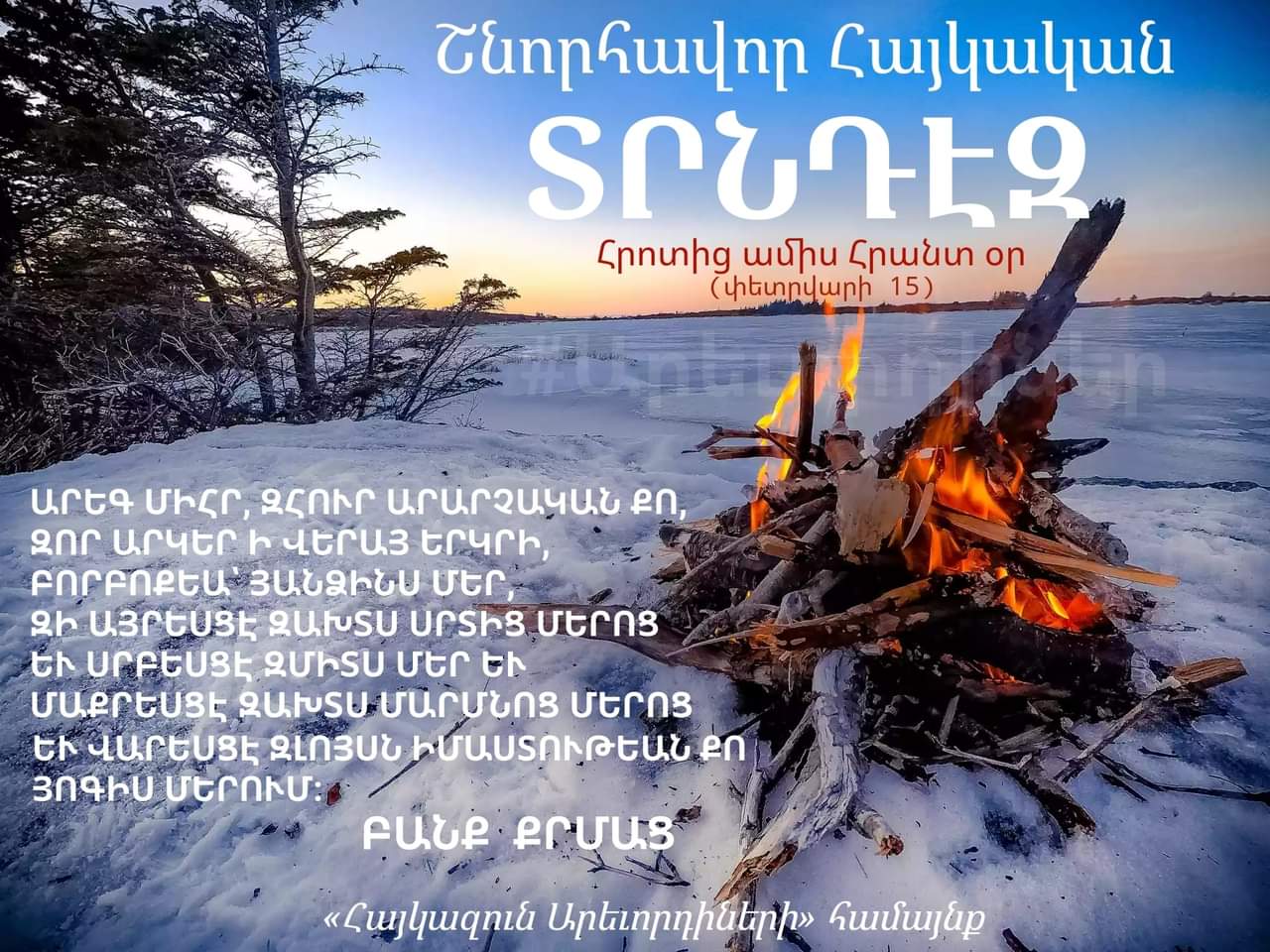Անթառամ Դափնին (The Everlasting Laurel) is a literary work or article written by Arshak Chobanian, a prominent Armenian intellectual, writer, and activist. In this piece, Chobanian reflects on themes of national struggle, sacrifice, and perseverance, particularly in the context of the Armenian people. The “everlasting laurel” symbolizes eternal glory and honor, often associated with the sacrifices made by Armenian heroes for the nation’s freedom and survival.
Chobanian’s work carries a message of hope and resilience, suggesting that despite hardships, the sacrifices of the past will not be in vain and will eventually yield positive outcomes for future generations. His writing typically emphasizes national pride, cultural preservation, and the moral duty to honor those who fought for the survival of the Armenian identity.
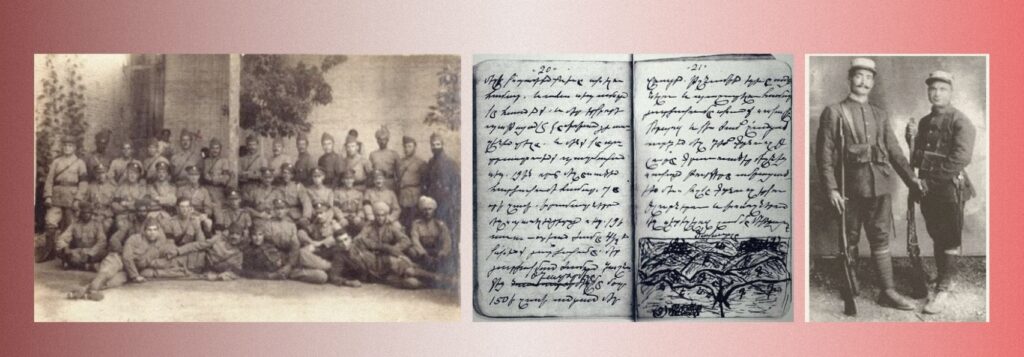
“Regarding the issue of the volunteers, I reaffirm my letter of October 6, after which I received official confirmation that our national aspirations will be satisfied following the victory of the Allies,” wrote Boghos Nubar to his son Arakel Nubar on October 27, 1916.
During the First World War, the objectives of forming the Armenian Legion with Armenian volunteers were to participate in the liberation of Cilicia and to restore Armenian independence in that historic territory, serving as the nucleus of a future Armenian army.
In the early days in Cairo, around 600 people from Musa Dagh and 300 Armenians residing in Egypt had already enlisted.
By late 1916, these volunteers were sent to the village of Monarga in Cyprus, where they joined hundreds of other Armenian volunteers for military training.
In early 1917, over 5,000 young Armenians living in the United States registered as volunteers within just a few days. A few months later, the number had risen to around 10,000. Due to the shortage of transportation, only 1,200 of them managed to cross the Atlantic Ocean from June to November, reaching France primarily aboard cargo ships under horrendous conditions, with about 70 to 90 people per ship. After surviving an attack by a German submarine while en route from Marseille to Port Said, the Armenian volunteers were successfully evacuated onto another ship using lifeboats. After a dangerous 16-day journey in narrow and filthy ship cabins, they reached Egypt and then proceeded to Cyprus.
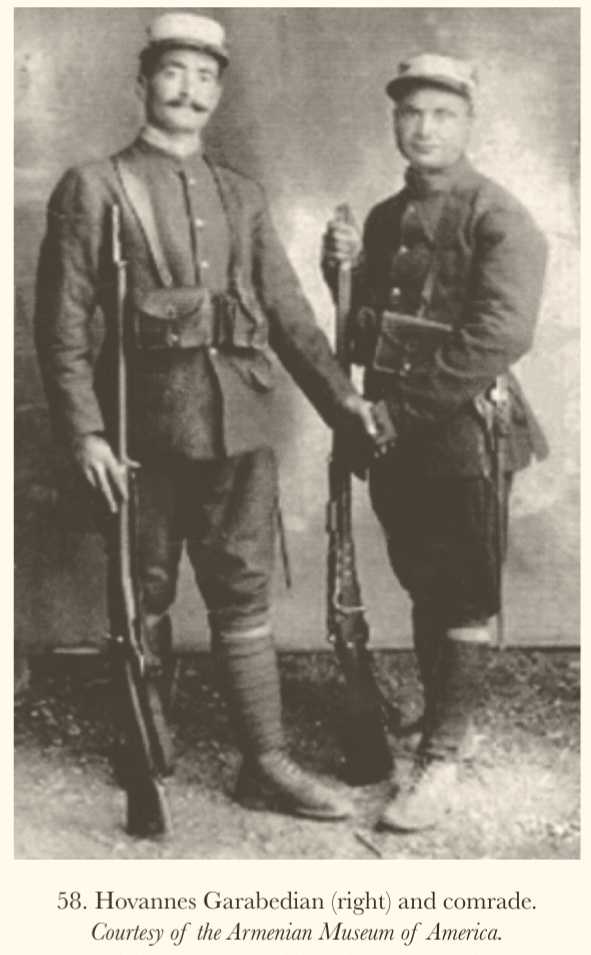
In his autobiography, Legionnaire Hovhannes Karapetyan recalls: “On September 18, we descended into our fortified trenches and waited for the night. The attack began at 3:30 in the morning…”
“The terrifying clash of gunfire echoed as if the sky and earth had collided in the darkness of the night. But for us (the Armenian Legionnaires), it felt like a wedding celebration. Filled with a deep sense of vengeance against the Turks, each of us had become like a wild lion hunting its prey. Fully armed, bayonets affixed to our rifles, we felt as if there was no fear. Our primary goal was to settle the score with the enemy for the Armenian Genocide and to exact justice on as many Turks as possible.
As the enemy’s machine-gun fire rained down on us like a spring hailstorm, we advanced undeterred and fearless. Amid extreme difficulties, often hanging between life and death, we finally reached the mountaintop. With a decisive ‘blitzkrieg,’ we captured the enemy fortifications, leaving countless dead and taking 28,000 prisoners. In the main battle, which lasted 30 hours, we had 24 dead and 75 wounded.”
“The next morning, we climbed the mountain again and inspected the enemy trenches. They were filled with corpses. Those who were not yet dead were the most unfortunate. The memory of yesterday’s Genocide (the loss of our parents, children, sisters, and brothers) was so fresh in our minds, and the thirst for revenge ran so deep in the hearts of the Armenian Legionnaires, that the wounded Turks received no mercy. We finished them off in their trenches. Thus, the fierce Turkish resistance was utterly crushed, and the enemy retreated in chaos into the depths of the country…”
“I am proud to have had an Armenian unit under my command. They fought brilliantly and played a major role in the victory,” General Allenby congratulated Boghos Nubar on October 12. (Quotes and photographs from Susan Paul Pattie’s The Armenian Legionnaires).

“During the World War, the heroic spirit of sacrifice shown by the Armenian brave men is one of the most glorious episodes in the ancient history of our people,” writes Arshak Chobanian in his article “The Imperishable Laurel.”
“A small people, subjected to heavy yokes for hundreds of years, fragmented and persecuted by massacres, divided into many distant and separate parts, was able to reawaken within itself the bold courage of its Forefathers. Through the heroic deeds of its thousands of volunteers, it earned its share of honor in the great struggle fought in the name of Freedom and Justice. Thanks to the magnificent role played by these brave men, our small nation once again demonstrated that it possessed the soul of a great nation. Through its significant military effort, which it stubbornly sustained until the end of the war, it was able to render notable services to nations infinitely larger in number and strength—the major powers waging the war. These services were acknowledged and praised by the highest representatives of those mighty states.
The lionhearted bravery of the Armenian volunteers at Arara is one of the most beautiful pages of this Armenian epic. In the decisive victory that the Allies won against the Turkish army around that now-historic hill in Palestine—where they crushed the dark force of the massacre-loving race—our brave men played a brilliant part, magnificently fulfilling their bold and difficult role.
The surviving comrades have every right to forever celebrate with pride and reverence the radiant memory of those heroic young men who fell with valor, a memory before which the entire Armenian people bow in solemn respect.”
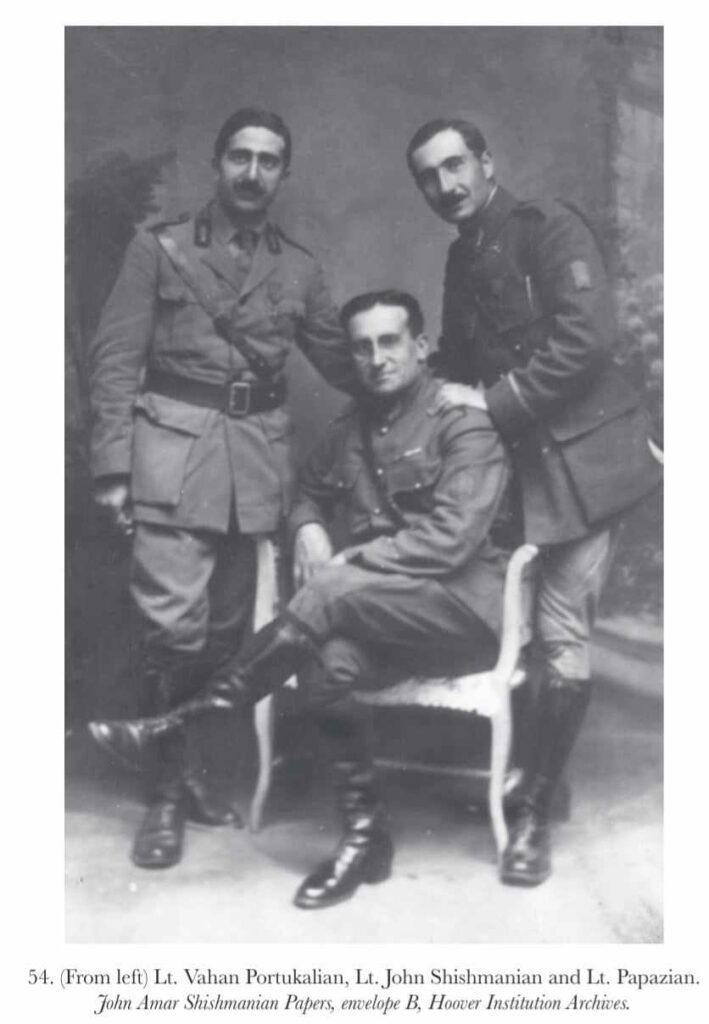
The bravery demonstrated by our soldiers at Arara and all other fronts is an imperishable laurel that crowns the name of our nation with indelible glory. Thanks to the sacred valor of our courageous men, our people also took part in the just cause of liberating Syria, Palestine, Mesopotamia, Arabia, as well as Poland, Czechoslovakia, and Alsace-Lorraine. This should forever be a source of noble pride and eternal encouragement for us.
It is true that after the end of the Great War, at the moment of realizing the demands of Justice, our people—due to various unfortunate and opposing circumstances—were abandoned and wronged by their victorious great allies. This casts a dark shadow over the laurel of glory.
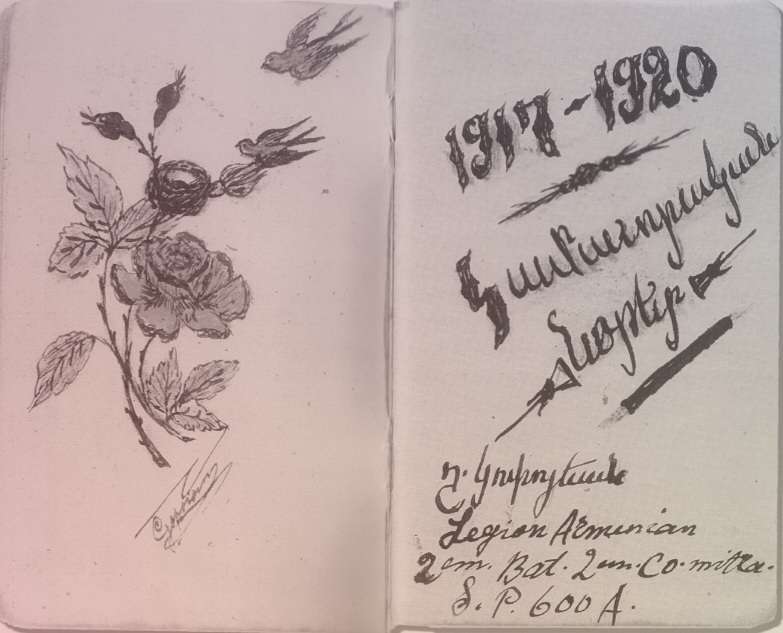
But history is not closed. The day will come when that black veil will melt away and disappear. It would be blasphemous to think that the sacrifice of our heroes has been entirely in vain for our people, and to assume that it will not one day bear its full fruit.
(Excerpt from Arshak Chobanian’s article “The Everlasting Laurel”)

